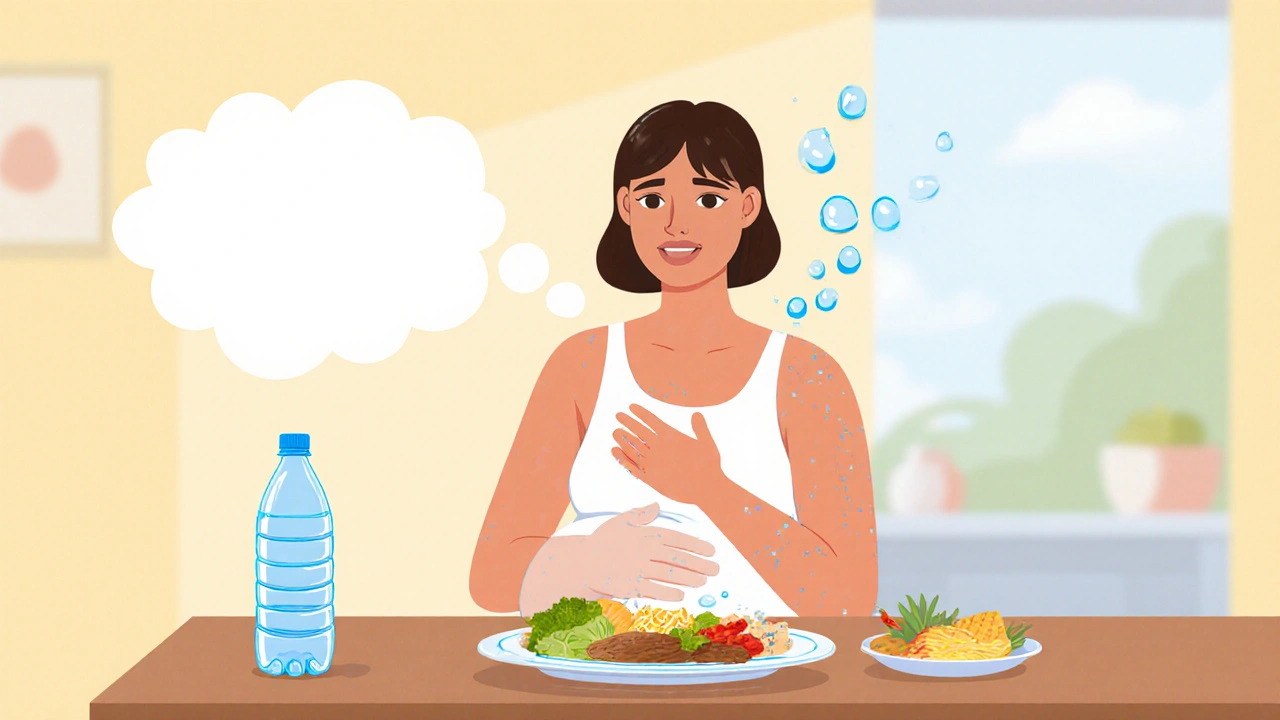Learn how dehydration triggers bloating and discover simple hydration habits, foods, and tips to keep your belly flat and comfortable.
Dehydration: Causes, Signs, and How to Stay Properly Hydrated
When your body loses more fluid than it takes in, you’re dealing with dehydration, a condition where your body doesn’t have enough water to function normally. Also known as fluid deficit, it’s not just about feeling thirsty—it can mess with your energy, brain function, and even your heart. You don’t need to be running a marathon in the desert to get dehydrated. Skipping water all day, sweating from a fever, or even just drinking too much coffee can add up. And it doesn’t always hit you suddenly. Many people walk around mildly dehydrated without realizing it—headaches, dry mouth, or that afternoon slump? Could be your body begging for water.
Electrolytes, minerals like sodium, potassium, and magnesium that help your cells work are just as important as water. When you sweat, you lose both. That’s why drinking plain water after a long workout isn’t always enough. If you’ve had diarrhea, vomiting, or a high fever, your body loses electrolytes fast. That’s when you need more than just H2O—you need something that replaces those lost salts. Kids and older adults are especially at risk. Their bodies don’t hold water as well, and they often don’t feel thirsty until it’s already serious. Even mild dehydration can make you foggy, irritable, or tired. Studies show that losing just 2% of your body’s water can drop your focus and physical performance.
Heat exhaustion, a step before heatstroke, often starts with dehydration. If you’re outside in the sun, working hard, or just sitting in a hot room without fluids, your body can’t cool itself. You might feel dizzy, nauseous, or have cold, clammy skin. It’s not just a summer problem—indoor workers in poorly ventilated spaces get it too. And if you’re on certain meds—like diuretics for blood pressure or laxatives—you’re more likely to lose fluids faster. That’s why knowing the signs matters. Urine color? Pale yellow means you’re good. Dark amber? Time to drink. Dry skin? Slow skin pinch test? That’s dehydration calling.
Fixing dehydration isn’t rocket science. Start small: sip water throughout the day, not just when you’re parched. Eat water-rich foods like cucumbers, oranges, and watermelon. Skip the sugary drinks—they can make it worse. If you’re sick or sweating hard, reach for oral rehydration solutions. They’re cheap, effective, and way better than sports drinks loaded with sugar. And if you’re caring for someone older or a child, watch for quiet signs: less peeing, no tears when crying, sunken eyes. Those aren’t normal. They’re red flags.
Below, you’ll find real comparisons and practical guides on how dehydration connects to everyday health issues—from meds that dry you out, to how it affects your energy, digestion, and even heart health. No fluff. Just clear, usable info that helps you stay on top of your fluid game.

